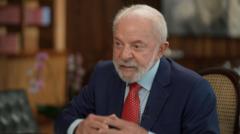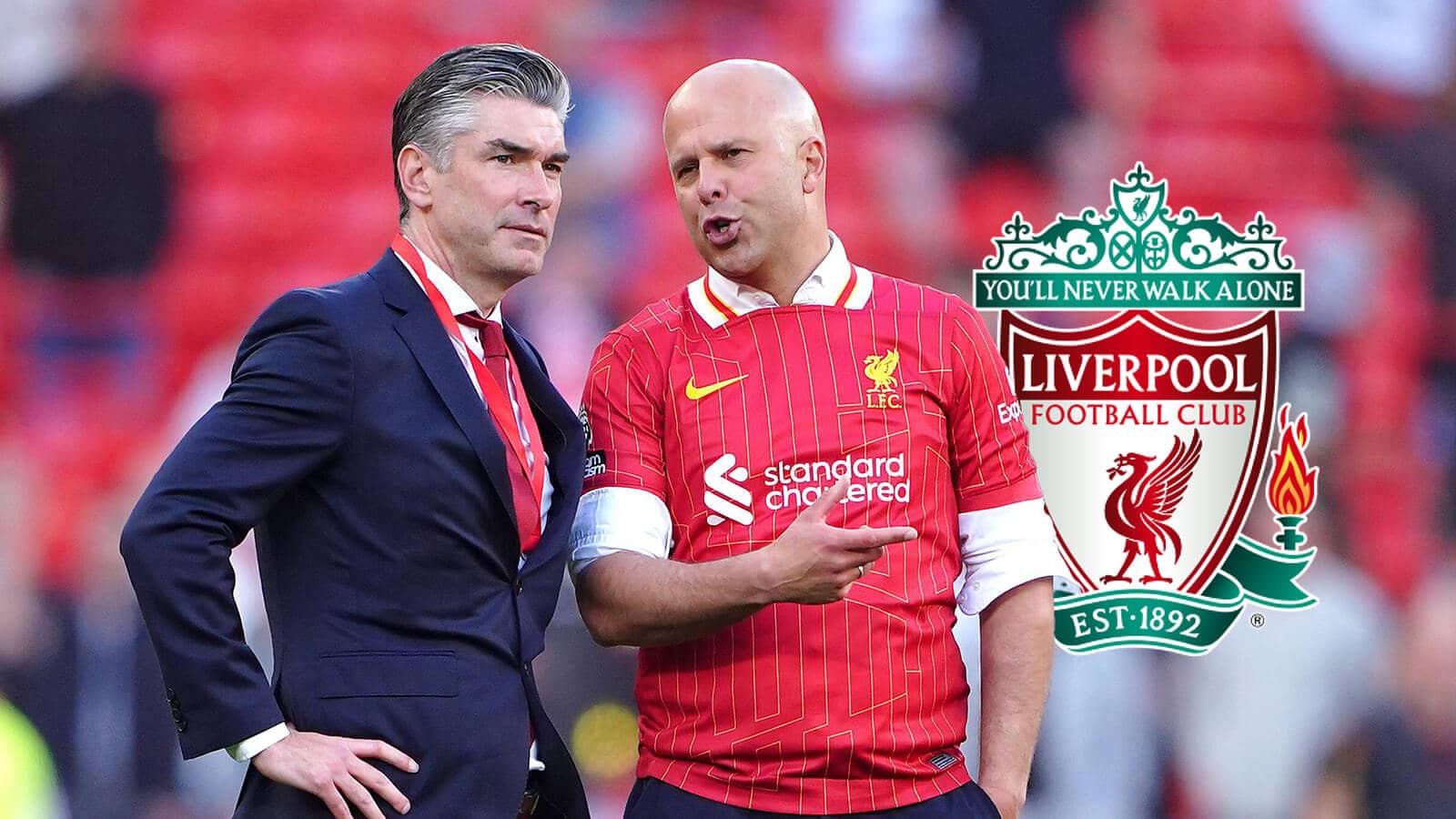Is Brazil's President Lula Really Disconnected from Trump?

Published: 2025-09-17 21:10:19 | Category: world
Brazil's President Luiz Inácio Lula da Silva has openly declared that there is "no relationship" between him and US President Donald Trump, highlighting the strained diplomatic ties between Brazil and the United States. Lula's remarks come in light of Trump's recent imposition of 50% tariffs on Brazilian goods, which he described as politically motivated and detrimental to both Brazilian exporters and American consumers.
Last updated: 14 October 2023 (BST)
Key Takeaways
- Lula claims there is no communication or direct relationship with Trump.
- Trump's tariffs on Brazilian goods are seen as politically motivated and harmful.
- Lula has built relationships with various global leaders but not with Trump.
- The Brazilian president has faced domestic criticism for his oil policies near the Amazon.
- Lula's legacy includes major social achievements, but his future political plans remain uncertain.
Strained Diplomatic Relations
In an exclusive interview with the BBC, President Lula expressed his discontent with the current state of relations between Brazil and the United States. He noted that communication is effectively non-existent, stating, "I never tried that call because he never wanted to have a conversation." This remark underscores the lack of dialogue between the two leaders, despite Trump's previous statement that Lula could "call him anytime."
The Impact of Tariffs on Brazilian Exports
Trump's decision to impose a 50% tariff on Brazilian goods since July has been met with criticism from Lula, who called the tariffs "eminently political." He pointed out that these tariffs would lead to increased prices for American consumers on popular Brazilian exports such as coffee and beef. "The American people will pay for the mistakes President Trump is incurring in his relationship with Brazil," Lula stated, reflecting the broader economic implications of this decision.
Background on Lula's Criticism of Trump
Lula has not shied away from criticising Trump in the past. He has pointed out that the US president's approach to diplomacy lacks civility, referencing how he learned about the tariffs through Brazilian newspapers rather than direct communication. The Brazilian president remarked that such actions are indicative of Trump's disinterest in fostering a positive relationship with Brazil.
Brazil's Political Landscape
Reflecting on his predecessor, Jair Bolsonaro, Lula noted the severe consequences of the coup plots that led to Bolsonaro's conviction by Brazil's Supreme Court. Bolsonaro, sentenced to 27 years in prison, was found guilty of plotting a coup after losing the election to Lula. Lula condemned Bolsonaro's actions, stating, "They hurt the country, attempted a coup, and plotted my death."
Comparing Relationships with World Leaders
When discussing his diplomatic relationships, Lula highlighted his successful connections with other global leaders, contrasting them with his lack of rapport with Trump. He emphasised that his relationship with Trump is essentially non-existent because, during Trump's first election, Lula was not in office. Lula stated, "His relationship is with Bolsonaro, not Brazil." This perspective illustrates the importance of personal relationships in international diplomacy.
The UN and Global Politics
In the interview, Lula advocated for reform within the United Nations (UN), criticising the current structure that grants veto power to the five permanent members of the UN Security Council. He argued that this system favours the nations that emerged victorious from World War II, sidelining the interests of countries like Brazil, Germany, and India. Lula's call for a more equitable UN reflects his desire for a multilateral approach to resolving global conflicts.
Brazil's Relationship with Russia
Despite the ongoing war in Ukraine, Lula defended Brazil's continued oil purchases from Russia, asserting that Brazil had condemned the invasion of Ukraine from the outset. He explained that Brazil, like other countries, requires oil for its economy, stating, "Brazil doesn't finance Russia; we buy oil from Russia because we need to." This statement highlights the complexities of international trade and the challenges of aligning economic needs with political stances.
Domestic Controversies and Environmental Concerns
Lula's administration has not been free from controversy, particularly regarding exploratory drilling for oil near the Amazon River. His government has moved forward with plans to allow exploration, which has drawn criticism from environmental groups and his own environment minister, Marina Silva. Lula defended these actions, insisting that Brazil is following legal protocols and that any potential oil spills would be addressed responsibly.
The Energy Transition Debate
During discussions about climate change and energy, Lula acknowledged the need for a transition away from fossil fuels but argued that the current moment does not allow for such a shift. "I want to know of any country that is prepared to have an energy transition and capable of giving up fossil fuels," he remarked, highlighting the persistent reliance on traditional energy sources even amid growing environmental concerns.
Lula's Future and Political Aspirations
At 79 years old, Lula has not yet decided whether he will seek re-election in the 2026 presidential elections. He indicated that his health and the political landscape will shape his decision. Despite recent drops in approval ratings, Lula received a boost after Trump's tariffs were imposed, which may influence his potential campaign.
Reflecting on Achievements and Legacy
As he looks to the future, Lula emphasised his achievements in reducing hunger, lowering unemployment, and boosting the incomes of working-class Brazilians. These accomplishments form a significant part of his political legacy, even as he navigates the challenges of international relations and domestic controversies.
Conclusion
President Lula's candid remarks about his relationship with Donald Trump and the state of US-Brazil relations reveal significant diplomatic tensions. As Brazil prepares to host the COP30 climate summit, the implications of Lula's policies and international relationships will be closely scrutinised. The challenges he faces, both domestically and on the global stage, will undoubtedly shape the future of Brazil and its role in international affairs. How will Lula's leadership evolve in response to these pressures?
#Brazil #Lula #Trump #Diplomacy #InternationalRelations
FAQs
Why does Lula say there is no relationship with Trump?
Lula claims there is no direct communication or relationship with Trump, noting that he never attempted to engage because Trump has shown no interest in conversation.
What are the implications of Trump's tariffs on Brazilian goods?
Trump's tariffs have raised prices for American consumers on Brazilian exports, potentially harming both economies and reflecting political motivations behind the trade measures.
How has Lula's relationship with other world leaders compared to Trump?
Lula has established relationships with various global leaders, contrasting them with his lack of rapport with Trump, whom he views as having a relationship primarily with his predecessor, Bolsonaro.
What are Lula's views on the United Nations?
Lula advocates for UN reform, criticising the veto power held by the five permanent Security Council members, which he believes undermines the representation of many nations.
What is Lula's stance on Brazil's oil purchases from Russia?
Lula defends Brazil's oil purchases from Russia, stating that the country condemns the invasion of Ukraine but needs to procure oil like other nations for economic stability.



